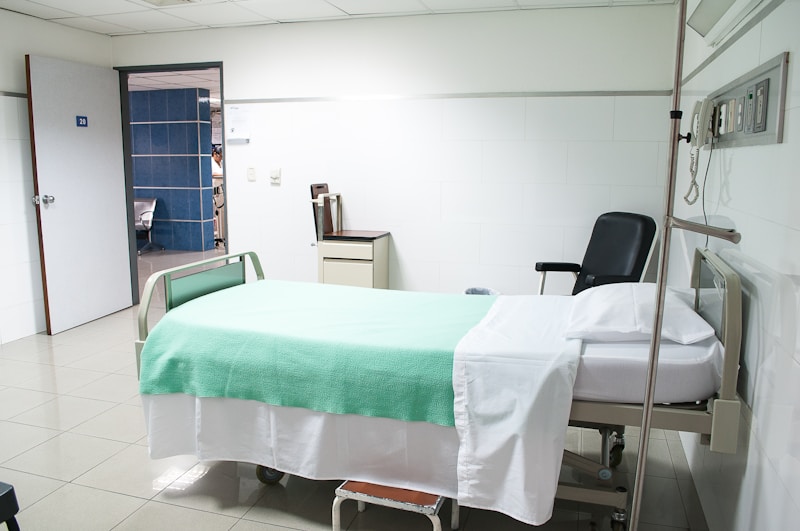Understanding the Risks of Improper Care: Safeguarding Health and Well-being
Understanding the Risks of Improper Care: Safeguarding Health and Well-being
Introduction
In our fast-paced world, the importance of proper care—whether for ourselves, our loved ones, or our belongings—cannot be overstated. Understanding the risks of improper care is crucial for safeguarding health, well-being, and even finances. In this article, we will explore the various dimensions of improper care and its potential repercussions, offering insights to help you avoid such pitfalls.
The Cost of Neglect: Recognizing Improper Care
Improper care often stems from negligence or a lack of understanding. From personal health to pet care and home maintenance, neglect can have severe consequences. Understanding these risks not only helps in preventing unfortunate events but also highlights the importance of proactive care.
Personal Health Risks
When it comes to personal health, improper care can lead to a range of issues, including chronic diseases, mental health struggles, and even fatalities. Some common aspects include:
| Type of Neglect | Potential Risks |
| Poor Nutrition | Obesity, diabetes, malnutrition |
| Lack of Exercise | Cardiovascular diseases, weakened immunity |
| Ignoring Medical Advice | Progression of diseases, complications |
| Poor Mental Health Support | Anxiety, depression, social isolation |
Each of these factors plays a significant role in your overall health. Thus, ensuring proper care in these areas is essential to live a healthy and balanced life.
Risks in Pet Care
Pets offer companionship and love but require proper care to thrive. Neglecting a pet’s needs can lead to health risks not just for the animal, but also for the owners. Common risks associated with improper pet care include:
- Health Risks: Without regular veterinary care, pets may suffer from untreated conditions, leading to more severe illnesses over time.
- Behavioral Issues: Pets that are not cared for properly may develop anxiety or aggression, affecting their interaction with humans and other animals.
- Financial Consequences: Ignoring small health problems can lead to expensive treatments later, impacting your finances.
Home Maintenance Hazards
Improper care isn’t limited to health and pets; our living environments require attention as well. Failing to conduct regular home maintenance can lead to various risks, such as:
| Type of Neglect | Potential Risks |
| Ignoring Plumbing Issues | Water damage, mold growth |
| Overlooking Electrical Problems | Fire hazards, electric shocks |
| Neglecting Roof Maintenance | Leakages, structural harm |
| Not Cleaning HVAC Systems | Poor air quality, health problems |
Regular maintenance not only preserves the integrity of your home but also ensures a safe living environment.
Financial Implications of Improper Care
Many individuals overlook the financial consequences stemming from improper care in various areas of life. Here are several financial implications to consider:
- Medical Bills: Unattended health issues can lead to high medical expenses.
- Pet Healthcare Costs: Ignoring routine veterinary care can necessitate expensive emergency interventions.
- Home Repairs: Preventative maintenance can mitigate costly repairs down the line.
Investing time and effort in proper care can ultimately save money, demonstrating that proactive approaches are crucial.
Addressing Improper Care: Practical Steps
On recognizing the risks associated with improper care, it is essential to take action. Here are some practical steps you can implement:
1. Prioritize Routine Check-ups
Scheduling routine check-ups for both personal health and pets is vital. Regular medical visits help catch health problems early and prevent complications.
2. Educate Yourself
Knowledge is key. Invest time in understanding the proper care techniques for your health, pets, and home. Read articles, attend workshops, or consult professionals when needed.
3. Develop Maintenance Schedules
Create a calendar marking regular home maintenance tasks. This organization can help avoid the stress of unexpected repairs and gives peace of mind.
4. Build a Support System
Surround yourself with people who prioritize proper care. Whether it’s family, friends, or community groups, having a support system can motivate and assist you in maintaining healthy practices.

Conclusion
Understanding the risks of improper care is essential to fostering a healthy and secure lifestyle. From health and pets to homes and finances, neglect can lead to serious consequences, often escalating to more significant problems if left unchecked. By prioritizing routine check-ups, educating yourself, developing maintenance schedules, and building a support system, you can mitigate the risks associated with improper care. Remember: proactive care is not just a responsibility; it’s a vital step towards ensuring a better quality of life. Stay informed, stay vigilant, and always take the necessary steps to care properly for yourself and your surroundings.
In summary, safeguarding health and well-being is paramount. Prioritizing care is not merely a choice but a responsibility. Stay aware of the risks—and remember, a little care goes a long way.
